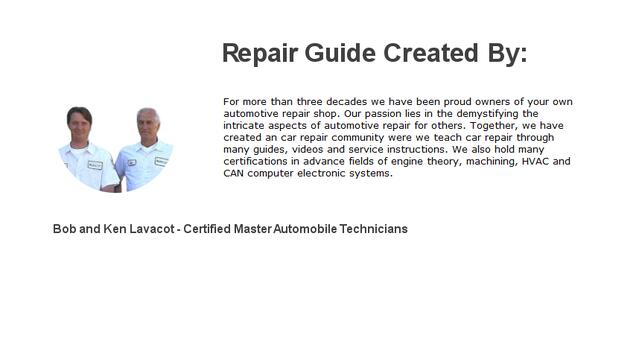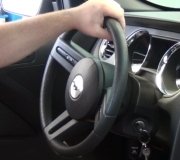Introduction
Hearing a clicking noise while turning your vehicle can be alarming and is often a sign of a deeper mechanical issue. This guide will walk you through the steps to diagnose and repair the most common causes of clicking sounds during turns, such as problems with the CV joints, wheel bearings, and suspension components.
Safety First
Before beginning any automotive repair, it’s essential to ensure that you have a safe working environment.
- Park your vehicle on a flat surface.
- Engage the parking brake.
- Wear safety gloves and goggles.
- Use jack stands if you will be lifting the car off the ground.
Warning: Never work under a vehicle supported only by a jack. Always use jack stands.
Clicking Sound Location
Determine when you hear the clicking or ticking noise, and from what area; front, rear, left, right. Also, it helps to and which way you are turning the car. Once a clicking sound has been detected action must be prompt to avoid further damage and a possible break down. Some clicking noises are normal such as: electrical relays, emergency flashers, turn signals and the air conditioner when first turned on. The list below contains the most popular clicking sound while turning problems.
Popular
1. CV Axle Failure: On front wheel drive cars there will be two CV axles, one on either side, right and left. After time and usage these CV axle can wear causing a clicking noise when turning right or left, or when accelerating. As expected if you turn right and hear the noise, the right side CV axle needs replacement, and vise versa. Look for any visible damage to the CV joint boots (rubber coverings). If they are torn, cracked, or leaking grease, this indicates the CV joints may be compromised.
Note: If the CV boot is torn some might say you can just replace the boot but it has been our experience once the CV axle starts to make noise most of the time a new CV boot will not help.
2. Bearing Hub Failure: An axle hub bearing is designed to shoulder the load of the car while allowing the wheels to rotate. When a bearing hub fails it can create a clicking sound while turning and/or going straight. If you have a truck with large tires, this bearing will go out often. The clicking noise can also change as you turn the car left or right, meaning the bearing hub has failed and needs replacement.
- With the vehicle raised, grab the wheel at the 12 and 6 o’clock positions.
- Attempt to rock the wheel back and forth. If there is any play or movement, the wheel bearings may be worn or damaged.
- Spin the wheel manually and listen for any grinding or clicking sounds.
3. Loose Wheel Lug Nuts: Lugs nut are designed to hold the wheels onto the axle or bearing hub. When these lugs come loose they allow the rim of the wheel to move slightly which makes a clicking sound. Use a torque wrench or breaker bar to check the lugs nuts of each wheel to ensure their tightness. If you are using a torque wrench most lug nut need to be tightened between 75 and 95 foot pounds. If the lug nuts have been loose for an extended amount of time it could allow the wheel to come off while damaging the rim or wheel studs.
4. Broken Sway Bar Links: Sway bar has links are positioned on either side of the sway bar which have rubber insulators. When these insulators wear out it allows the metal of the link to contact the sway bar, or control arm, which can make a clicking sound when turning. Inspect your sway bar links at both the front and rear of the car.
- Check for loose or damaged ball joints, control arms, tie rods, and sway bar links.
- Look for signs of wear, such as cracked or torn rubber bushings.
- Use a pry bar to gently check for excessive movement in the suspension components.
If any suspension components are worn or loose, they will need to be replaced to resolve the clicking noise and restore proper steering and handling.
Credits
This guide knowledge base was created by the 2CarPros Team, and by Ken Lavacot: Automobile repair shop owner and certified master automobile technician of over 30 years. If you have question or need help please ask one of our experts we are happy to help. Please visit our 2CarPros YouTube Channel for additional car repairs.





